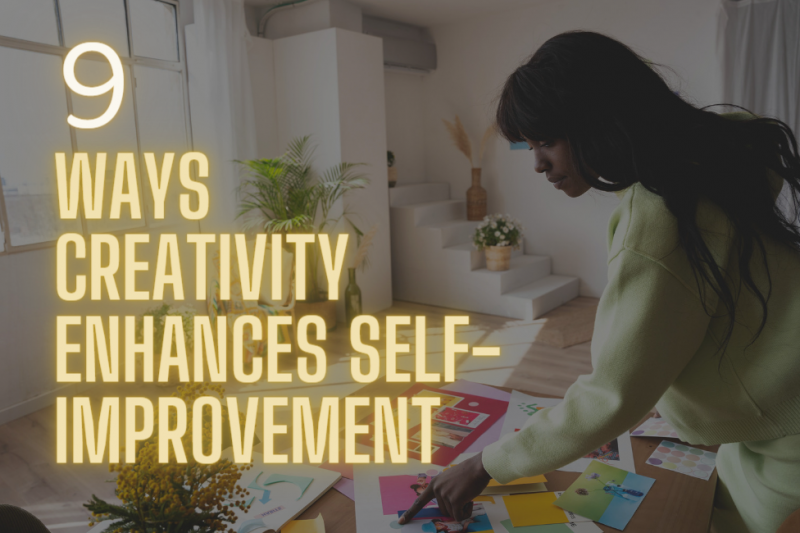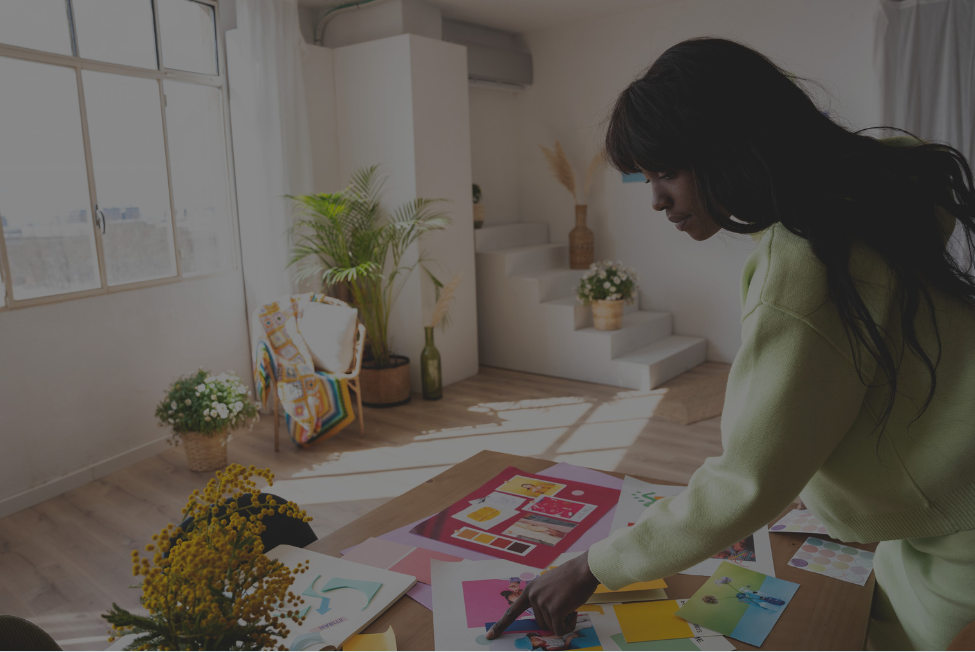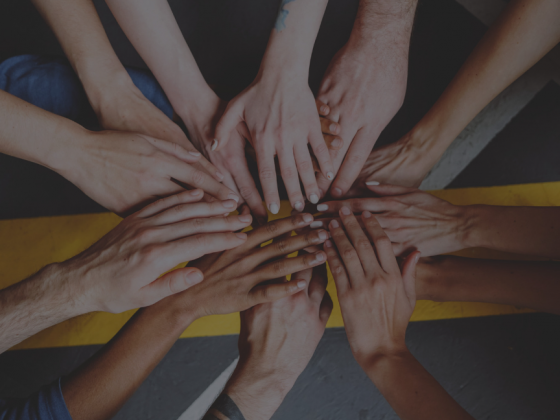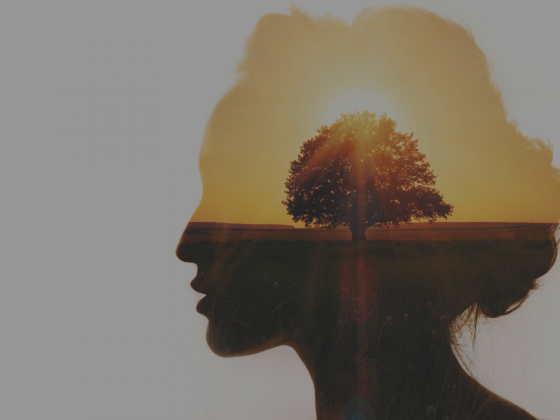
Introduction
You’re on a quest for self-improvement and we’re here to help. Discover how creativity isn’t just about producing art – it’s a pathway to becoming your best self. Whether you’re painting, writing, or crafting, you’re also building mental resilience, boosting confidence, and cultivating mindfulness.
So, let’s dive in and explore nine unexpected ways that embracing your creativity can enhance your journey of self-improvement. You’ve got nothing to lose and a whole lot to gain.
Unleashing Your Inner Artist
You’ve got an inner artist waiting to be discovered, and tapping into this creative force can open up countless avenues for self-improvement. It’s not just about painting or drawing, it’s about finding your unique form of expression. Maybe you’re better with words, so you could start writing poetry or stories. Perhaps you’re drawn to music; you could explore that by learning to play an instrument or even singing.
But why should you? Well, here’s the thing. Creativity isn’t some luxury; it’s a necessity for growth. When you’re being creative, you’re not just making something new. You’re also learning about yourself. You’re discovering what you like, what you don’t, what makes you tick. You’re putting yourself out there, and that takes courage. It’s a risk, sure, but it’s a risk worth taking.
Creativity and Mental Health
Now, let’s delve into how your mental health can significantly benefit from engaging in creative activities.
When you allow your mind to meander into the realms of creativity, you’re not just making art or coming up with innovative ideas, you’re also giving your brain a much-needed workout.
Engaging in creative activities helps reduce stress and anxiety. It’s akin to meditation, as it allows you to focus on the task at hand and momentarily forget about your worries. This sense of calm can help lower your blood pressure and enhance your overall mental wellbeing.
Moreover, creativity boosts your self-esteem. Every time you create something, you’re expressing yourself and showcasing your abilities. It doesn’t matter if you’re not the next Picasso or Mozart, it’s about enjoying the process and celebrating your unique perspective.
Furthermore, creativity can be a potent tool for self-reflection and personal growth. It helps you explore your thoughts and feelings more deeply, fostering self-awareness. This introspective journey can lead to significant improvements in your mental health.
Boosting Self-Confidence With Creativity
Over time, embracing creativity in your daily life can significantly boost your self-confidence. When you’re creative, you’re exploring your abilities and discovering what you’re capable of. Each project or idea you bring to life adds to your sense of accomplishment. You’re not only creating something new, but also learning about your skills and talents, which can be a great confidence booster.
Creativity also teaches you to deal with failures and criticism. You’ll often find that what you create may not always meet your expectations or those of others. But instead of letting it demotivate you, you learn to take it in stride, improve, and move forward. This resilience can greatly enhance your self-confidence.
Moreover, the joy of creating something unique, of expressing your thoughts and feelings, can be very fulfilling. It’s a testament to your abilities, and each successful project increases your faith in yourself. You develop a positive self-image, which reflects in all areas of your life.
Cultivating Mindfulness Through Art
You might be surprised to find that art can serve as a form of meditation, grounding you in the present moment and enhancing your mindfulness.
By engaging in creative activities, you’re not just making something beautiful – you’re also deepening your awareness.
Let’s explore how this happens and the benefits it brings to self-improvement.
Art as Meditation
Engaging in artistic activities can serve as an effective form of meditation, helping you cultivate mindfulness and enhance your self-improvement journey. Whether you’re painting, sculpting, or sketching, the creative process requires focus and presence, which naturally leads to a state of mindfulness.
As you immerse yourself in art, you’re not just creating something beautiful, you’re also developing a deeper awareness of your thoughts and feelings. This heightened consciousness can lead to greater emotional intelligence and resilience.
Art also allows for self-expression, providing a safe outlet to explore and process complex emotions. This can foster emotional healing and personal growth.
Enhancing Awareness Creatively
Harnessing your creativity through art can significantly boost your mindfulness, opening new avenues for self-awareness and growth. When you’re immersed in creating, you’re in the moment, fully engaged with your senses. This anchors you in the present, keeping your focus away from past regrets or future anxieties.
Experiment with different forms of art – painting, sculpting, drawing, or even digital design. Notice how colors, shapes, and textures stir emotions within you. This isn’t just about creating beautiful pieces, but about understanding your reactions, your preferences, and ultimately, yourself.
Artistic expression allows you to explore your internal landscape in a tangible form. It’s a creative journey that fosters awareness, understanding, and compassion towards your own self. And as you grow in mindfulness, you’ll find your path to self-improvement illuminated.
Creativity as a Coping Mechanism
You mightn’t realize it, but creativity can be a powerful tool for dealing with life’s stresses.
It’s not just about painting a picture or writing a poem; even the simple act of brainstorming can help you work through difficult emotions.
Let’s explore how you can use creativity not just as a way to express yourself, but also as a coping mechanism.
Stress Relief Through Creativity
When life’s stresses weigh you down, turning to creative outlets can offer a powerful coping mechanism. You might find a quiet corner and lose yourself in the process of sketching, or maybe you’d rather pick up a guitar and strum away your worries.
Creativity doesn’t just distract you, it helps you channel your emotions in a constructive way, providing an outlet for pent-up stress and anxiety. It’s a method of self-expression, allowing you to voice feelings you may not be able to articulate otherwise. Plus, the satisfaction you get from creating can boost your self-esteem.
Creativity in Therapy Sessions
Incorporating creativity into your therapy sessions can offer an additional layer of coping, helping you navigate through emotional hurdles with a therapeutic blend of self-expression and imagination. When you’re struggling to articulate feelings, creative methods like painting, writing, or even dance can provide a non-verbal outlet.
These activities don’t just distract, they actually help you process and manage emotions in a safe, controlled setting. You’re not avoiding your feelings, you’re expressing them in a new way.
Creative therapy can also boost your self-esteem, providing tangible proof of your progress. So don’t shy away from integrating creativity into your therapy.
It’s not a replacement for traditional methods, but it’s a valuable tool to add to your self-improvement arsenal.
Enhancing Problem-Solving Skills
By tapping into your creative side, you’ll discover fresh perspectives to tackle challenges more effectively. Creativity isn’t just about producing art; it’s a powerful tool for problem-solving. It encourages you to think outside the box, giving you the freedom to explore unexpected solutions.
When you’re faced with a problem, you might feel stuck, thinking there’s only one way out. But creativity can help you see that there’s an array of options. It’s about viewing the problem from different angles, breaking down the barriers of traditional thinking.
For instance, you’re trying to find a way to increase your productivity at work. Rather than sticking to conventional methods, why not try something new? Maybe rearranging your workspace, implementing a different schedule, or using innovative tools could be the answer.
Furthermore, creativity fosters resilience. You’ll learn to adapt to changes, handle setbacks, and come out stronger. It’s a journey of self-improvement, where every problem you solve creatively adds to your personal growth.
Learning New Skills Through Creativity
With creativity as your guide, you’ll embark on an exciting journey of acquiring new skills and abilities. Creativity isn’t just about painting masterpieces or composing symphonies. It’s a mindset that can be applied to every aspect of your life, especially when it comes to learning new skills.
Imagine you’re learning a new language. Instead of sticking to textbooks and flashcards, you could use your creativity to find unique ways to remember vocabulary. Maybe you’ll create a song or a story using the new words. This not only makes the learning process more fun, but also helps you retain information more effectively.
Or perhaps you’re trying to improve your public speaking skills. You could use creativity to come up with engaging stories to illustrate your points, or to design visually appealing slides that hold your audience’s attention.
In both cases, you’re learning new skills, but you’re doing it in a way that’s interesting, engaging, and tailored to your own unique style of thinking. And that’s the beauty of using creativity for self-improvement. It allows you to grow as an individual while also making the process enjoyable and rewarding.
Creativity’s Role in Emotional Expression
Now let’s delve into another facet of creativity: its powerful role in emotional expression. Often, words can’t fully capture how you’re feeling. That’s where creativity comes in. It offers you an alternative language, a way to express those complex, deep-seated emotions that are otherwise hard to articulate.
Think about the last time you listened to a powerful piece of music or stared at a captivating painting. Didn’t you feel a rush of emotions that you couldn’t quite put into words? That’s the beauty of creative expression. It’s not bound by the limitations of language; it’s a raw, unfiltered, and impactful way to convey your sentiments.
Creativity can also serve as a form of emotional release. When you’re going through a tough time, creating something — be it a poem, a sketch, or a song — can help you vent out your feelings. It’s a therapeutic process that promotes emotional healing and resilience.
Self-Discovery and Personal Growth
In the process of expressing your emotions through creativity, you’re also embarking on a journey of self-discovery and personal growth. You’re not just painting a picture or writing a story; you’re unearthing parts of yourself that you mightn’t have otherwise encountered.
This journey of self-discovery can lead to profound personal growth. When you’re creative, you’re not just building something new outside, but also developing internally. You’re learning about your strengths, your passions, your fears, and your dreams. You’re challenging yourself, pushing your boundaries, and stepping out of your comfort zone.
Every stroke of the brush, every word penned down, brings you closer to understanding who you truly are. You’re not just creating art; you’re also creating a more authentic version of yourself. Creativity gives you the freedom to explore, to question, to imagine, and to express. Through this process, you’re not just improving your skills; you’re improving yourself.
Frequently Asked Questions
How Can Creativity Contribute to Physical Health Improvement?
Creativity can greatly impact your physical health in numerous ways. When you’re creative, you’re likely engaging in activities that keep you active and moving. Painting, dancing, or gardening, for instance, can provide a great physical workout.
Plus, creative outlets can reduce stress, improve mood, and promote better sleep, all of which directly benefit your physical health.
Can Creativity Help Improve Social Relationships?
Absolutely, creativity can help improve your social relationships. When you’re creative, you’re open to new experiences and ideas, which makes you more interesting and engaging to be around.
You’re able to connect on a deeper level with others, share unique perspectives, and even solve conflicts in inventive ways. It’s also a great way to bond by doing creative activities together.
How Does Creativity Play a Role in Career Advancement?
Creativity can be a game changer for your career. It’s not just about coming up with fresh ideas, but also about problem-solving and innovation.
You’re able to see things from a different perspective, think outside the box, and find unique solutions. This sets you apart from others, making you a valuable asset to any team or company.
It’s also a great way to show initiative, drive, and leadership potential.
Can Creativity Enhance One’s Academic Performance?
Absolutely, creativity can boost your academic performance. It’s not just about memorizing facts.
When you’re creative, you’re more likely to understand concepts, think critically, and solve problems in unique ways. You may even find learning more enjoyable.
Is There a Relationship Between Creativity and Spiritual Growth?
Yes, there’s a strong relationship between creativity and spiritual growth.
When you engage in creative activities, you’re not just expressing yourself, but also exploring your inner self.
This leads to greater self-awareness and understanding, which are key to spiritual growth.
Creativity can help you uncover and address deep-seated issues, enhancing spiritual development.
Conclusion
So, you see, creativity isn’t just for artists. It’s a powerful tool for everyone looking to boost their mental health, confidence, and problem-solving skills.
It’s a fantastic way to express emotions, learn new skills, and discover your true self.
Give it a try and see how it transforms your life. After all, self-improvement isn’t about perfection, it’s about progress, and creativity can certainly help you make leaps and bounds.




